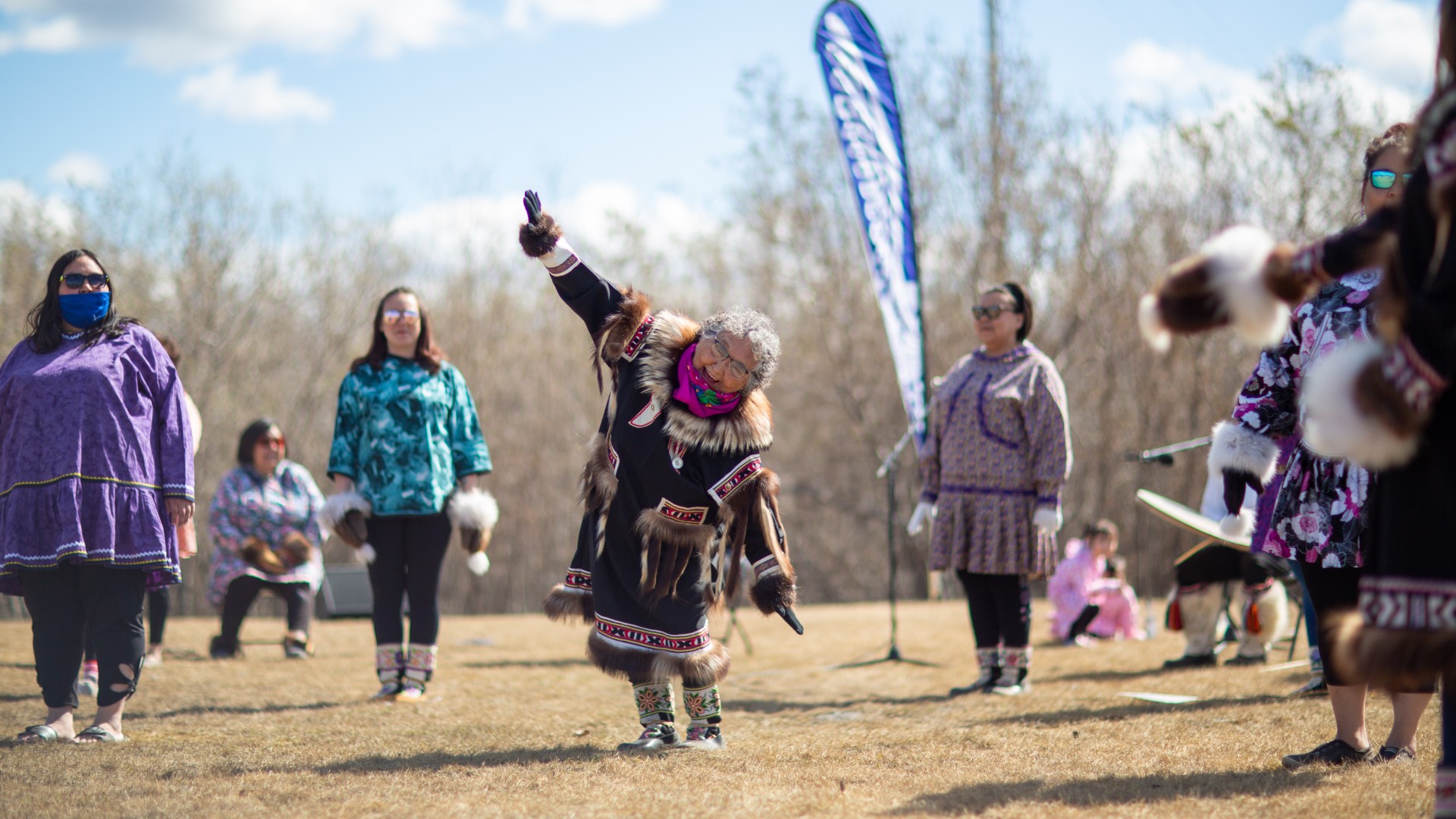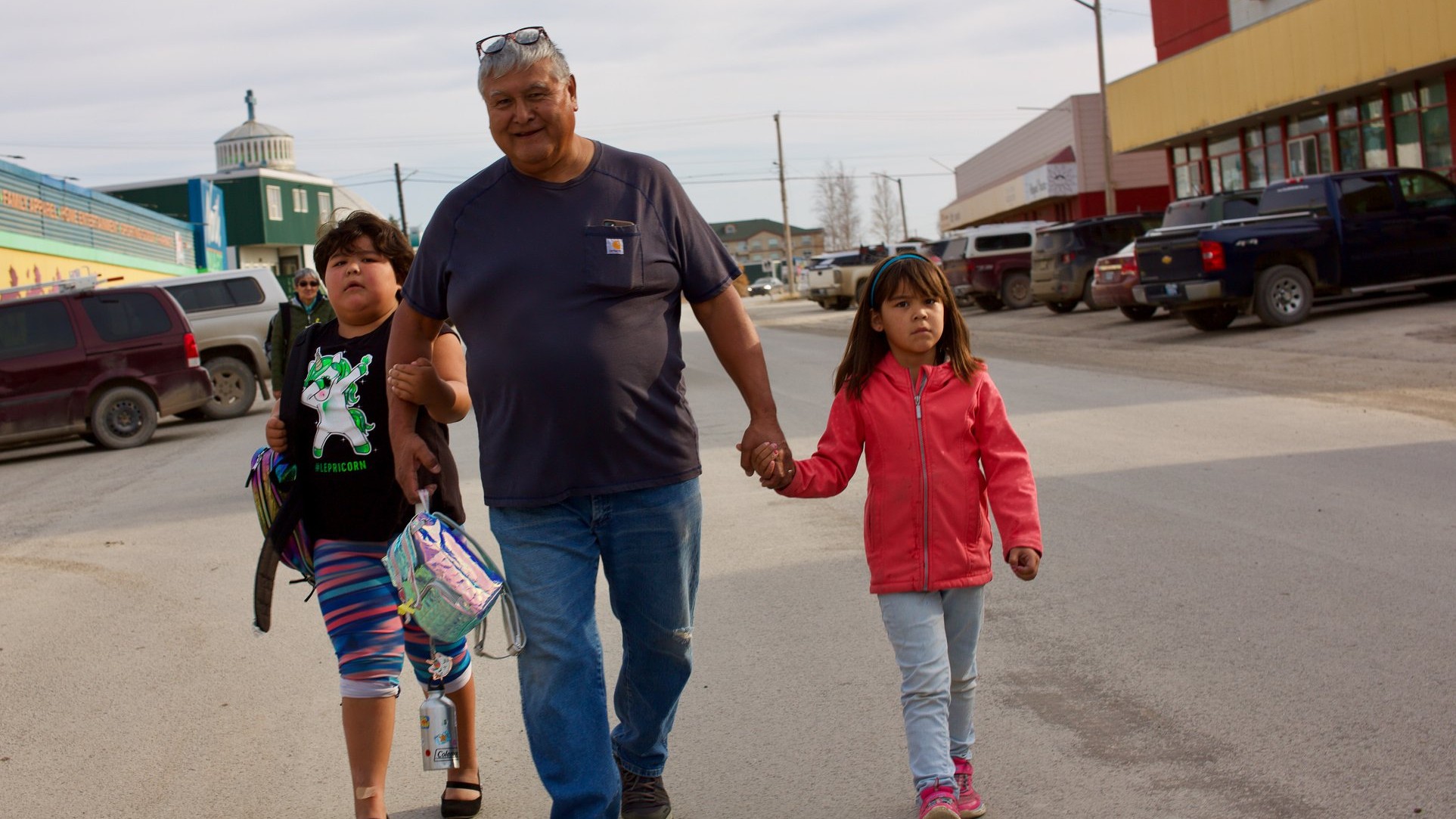Virtual events lined up for National Indigenous Peoples Day in northern Canada

Many National Indigenous Peoples Day events are going online in the Inuit region of Canada’s Northwest Territories (NWT) this Sunday, as COVID-19 social and physical distancing requirements remain in place in the territory.
The community corporations in the Inuvialuit Settlement Region (ISR) typically organize events to mark National Indigenous Peoples day on June 21.
Previous year’s events have included everything from drum dancing to northern games like blanket toss to public art unveilings.
Current territorial public health orders limit outside gatherings to 50 people and say physical distancing must be observed, so many of this year’s events in the ISR will be streamed so as many people as possible can participate.

One of the main events on Sunday will be a storytelling event by Gerry Kisoun at the Jak Territorial Park in the Arctic town of Inuvik.
The event will be streamed on the Inuvialuit Communications Society Facebook page.
Also on Sunday, an online National Indigenous Peoples Day event is being hosted online by Inuit Futures in Arts Leadership with an opening event featuring Inuvialuit elder Lilian Elias and a drum dance performance by Sylvia Cloutier, originally from Nunavik, the Inuit region of Arctic Quebec, but who now lives in Canada’s eastern Arctic territory of Nunavut.
Day established in 1996
National Indigenous Peoples Day (originally called National Aboriginal Day) was established in 1996 to recognize the contributions of First Nations, Inuit and Métis in Canada.
Indigenous organizations and the Government of Canada chose June 21 as the date as it coincided with the summer solstice, the longest day of the year. (The name was changed to National Indigenous Peoples Day on 2017 as the word Indigenous became more widely used than the word Aboriginal nationally and internationally.)
Other territories going virtual
In Canada’s northwestern Yukon territory, many celebrations will also be online.
In the capital city of Whitehorse, the Kwanlin Dün Cultural Centre and the Yukon First Nation Culture and Tourism Association will be hosting a virtual National Indigenous Peoples Day celebration from 3pm to 5pm local time. The event will be streamed on both organizations’ social media channels.
Before the event, a “Drive-By Bannock” event will be hosted, giving away free, socially distanced, contact free, prepackaged bannock, jam and butter to drivers at the centre’s roundabout.
Write to Eilís Quinn at eilis.quinn(at)cbc.ca
Related stories from around the North:
Canada: Seal meat, dinosaurs and friends: Nunavut Day celebrated in Canada’s eastern Arctic, CBC News
Greenland: International Inuit Day is an occasion to affirm Inuit voices across the circumpolar world, leader says, Eye on the Arctic
Sweden: Calls for more Indigenous protection in Sweden on Sami national day, Radio Sweden
United States: Indigenous Peoples Day celebrated in Alaska, Alaska Public Media



